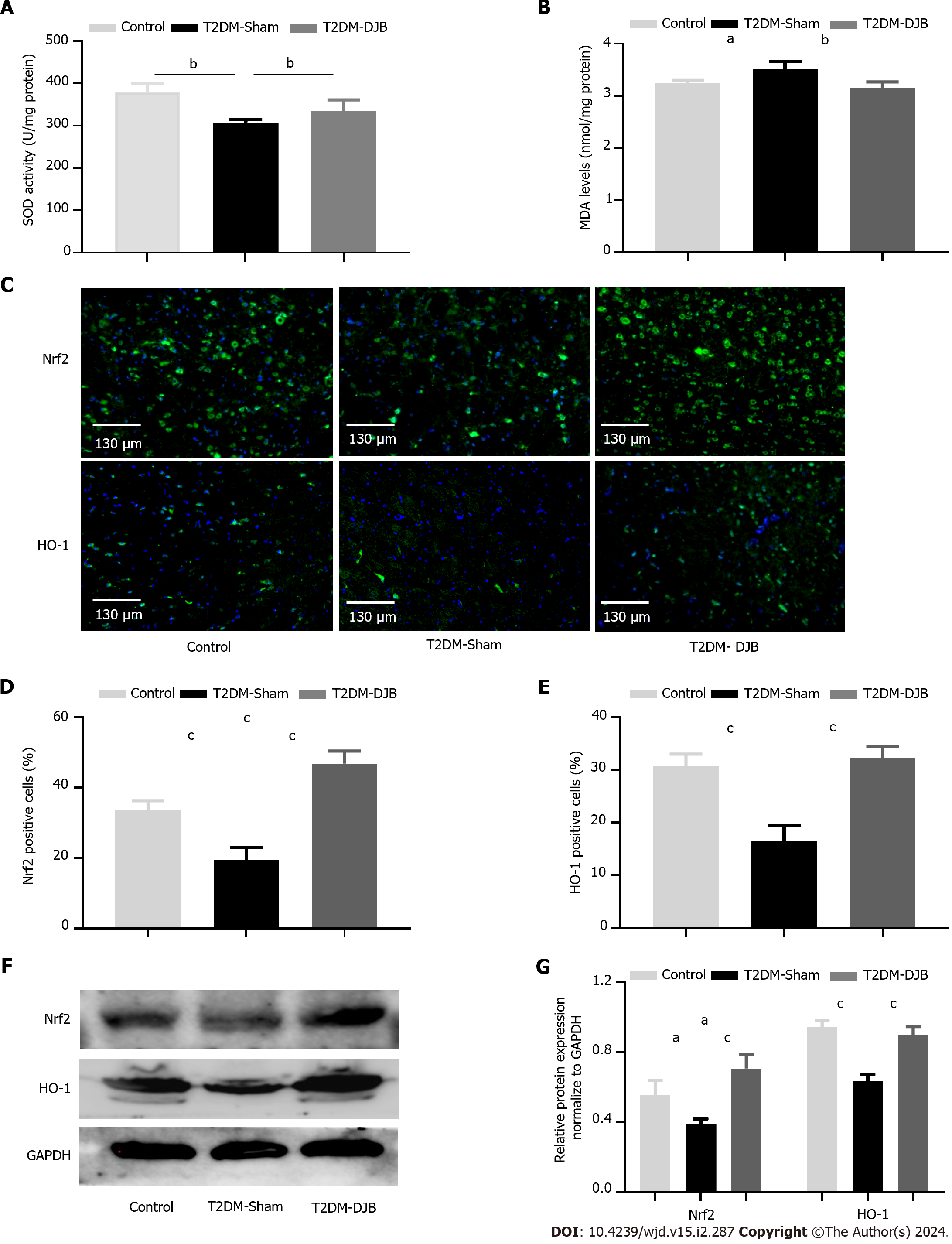Copyright
©The Author(s) 2024.
World J Diabetes. Feb 15, 2024; 15(2): 287-304
Published online Feb 15, 2024. doi: 10.4239/wjd.v15.i2.287
Published online Feb 15, 2024. doi: 10.4239/wjd.v15.i2.287
Figure 2 Duodenal jejunal bypass surgery inhibits hypothalamic oxidative stress in rats with type 2 diabetes mellitus by activating the Nrf2/HO-1 signaling pathway.
A: Analysis of SOD content in the hypothalamus of rats; B: Analysis of MDA content in the hypothalamus of rats; C: Nrf2 and HO-1 expression in the hypothalamus detected by immunofluorescence (scale bar, 130 µm); D: The percentage of cells expressing Nrf2; E: The percentage of cells expressing HO-1; F: Expression levels of Nrf2 and HO-1 in hypothalamus detected by Western blotting; G: The quantitative densitometric analysis of Nrf2 and HO-1. aP < 0.05, bP < 0.01, cP < 0.001. T2DM: Type 2 diabetes mellitus; DJB: Duodenal jejunal bypass.
- Citation: Wang HJ, Zhang LB, Sun SP, Yan QT, Gao ZQ, Fu FM, Qu MH. Duodenal-jejunal bypass improves hypothalamic oxidative stress and inflammation in diabetic rats via glucagon-like peptide 1-mediated Nrf2/HO-1 signaling. World J Diabetes 2024; 15(2): 287-304
- URL: https://www.wjgnet.com/1948-9358/full/v15/i2/287.htm
- DOI: https://dx.doi.org/10.4239/wjd.v15.i2.287









